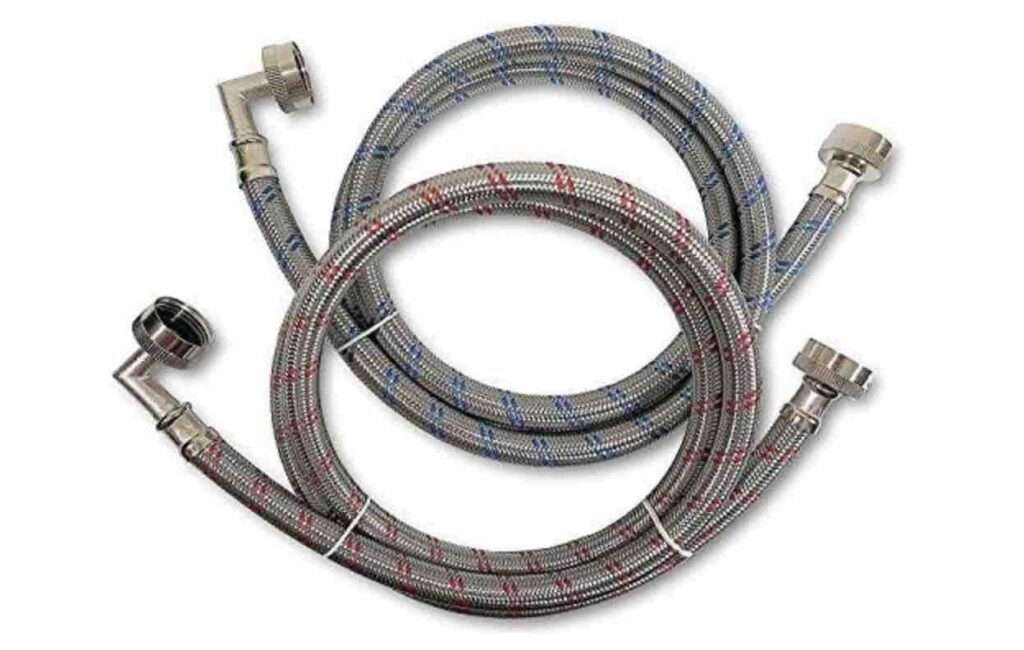One interesting thing is that, before you get to your destination by foot or with your vehicle, you must have passed/drive-through a paved way or route called a ‘Road.’ Road transportation is quite a crucial network for any country in which the state and municipal highways are involved.
The New Hampshire highway has seven classes of roads. Indeed, classes I to III-a are state highways, whereas classes IV to VI are municipal highways.
Though, these roads serve different purposes and have rules and regulations that guide them, controlled by the state or the municipalities.
Nevertheless, this article will help speed up your understanding of these contents; overview of New Hampshire class 6 roads, is class 6 roads in New Hampshire the same as class 5, what is a class 5 road in New Hampshire, class 6 roads in New Hampshire, what is a private road in NH, what is a class a road in NH, how do you classify roads, can you build a house on a class 6 road in NH, is a private road a public place, can land be landlocked in New Hampshire, and more.
Though, without further ado, let’s get started!
Overview Of New Hampshire Class 6 Roads
Introduction/Definition
The New Hampshire class IV roads (highways) are public roads out of the municipality’s jurisdiction to maintain. However, the entire people traveling alone have the right to use the roads.
It is imperative that the RSA 229:5, VII class VI defines the class VI roads as all other public routes, in line with highways discontinued, and should be mandatorily made with gates and bars as the municipal has not maintained them for the good of the travelers for a succession of 5 years or more.
Thus, class IV high-ways serve all purposes, that is, relating to traveling with regards to automobiles, though subject to the municipal rules.
Bars And Gates
Class VI roads are mandated to have gates and bars without mixing words, which means that it is no longer a public way.
Nevertheless, the term ‘gates and bars‘ technically and historically refer to an owner’s right to enclose the area, usually against livestock intrusion.
The municipalities permit public travelers to open and close the gates and bars as per the travel conditions. This legislative law meant for gates and bars became enacted in 1925, associated with the class VI highway.
The Underneath Land In Class VI Roads
Be patient to know the owner of the land underneath class VI roads!
So far, neither the general public nor the municipality owns the land underneath the class VI roads. Moreover, the public does have the right to use the land for traveling purposes.
Perchance, there is a presumption in the law that abutters to a public road own it to the middle of the road. The presumed law has evolved over the years due to land ownership challenges, especially on older routes. In essence, you can dispute this presumption law to an extent.
Abutters’ Rights Over Class VI Roads
Even if an abutter owns the middle of a class VI road, the abutter doesn’t have the right to interfere as the public uses the land or stops the public from enjoying the land. Nevertheless, abutters are taught and advised to avoid ditches, and if any disagreement arises, the courts will give the municipalities and the public the benefit of the doubt.
Permits For Buildings
Abutters are not permitted or given legal backing to build on the Class VI roads. Though, they should be aware of RSA 674:41.
Power And Obligations Of The Municipalities.
The municipalities don’t have the right to maintain the class VI roads, but they could have the power to regulate the class VI roads in the following;
There you have it!
- To control the use of the class VI roads but not to prevent/deny the public from using the roads.
- They regulate all streets and public routes, docks, squares, and the use thereof, control waste disposal, and erection of posts, signs, and public telephones. In the same vein, they are allowed to carry out the city expenses, control the playing of footballs and flying kites in restricted points, have control to stop any activity that will annoy people walking along the streets and roadside, and regulate the sanitary conditions of the environment.
- To an extent, regulate the use of vehicle speed on highways. Also, have regulations to control some traffic signals to avoid an accident.
- They use bylaws to control the parking, standing, and stopping of vehicles within the city limits, including laws on towing and disciplinary penalties for defaulters regarding civil procedure.
- Regulation on weight limits.
- Restrict some maintenance activities within the city without approval.
Although, these obligatory powers are not invoked with class VI roads because municipalities fear the responsibilities of maintaining the class VI highway might be on them.
So, sometimes class VI may be converted to class V by the city for due control over such roads, though without a formal procedure in making class VI to class V.
Maintenance Regulations
The right to maintain the class VI roads is vested in the hands of the abutting landowners. However, a landowner might have the power to take up some action in delicate and hazardous situations at a particular period.
Is Class 6 Roads In New Hampshire The Same As Class 5?
Although both are classes of municipal highways, they are not the same in New Hampshire. To this effect, class VI highways in New Hampshire are roads that have not been maintained by the municipal for over 5 years, as they have been discontinued and are subject to bars and gates.
So, class VI routes in New Hampshire are not maintained by the municipal, city, or town as they have no obligatory right to do just that.
Whereas class V routes in New Hampshire are rural highways, including all other highways the city or municipal has the compulsory right to maintain constantly, these class V roads are not subject to bars and gates.
What Is A Class 5 Road In New Hampshire?
A class V road in New Hampshire is a highway consisting of all other local highway travelers, which the town or municipal has the obligatory right to repair and maintain regularly.
The highway travelers on a class V road in New Hampshire are a limited group of people, such as hunters, loggers, and fishers. Traditionally, class V roads are defined in one statute as town roads, as regards RSA 229:5, VI.
Class 6 Roads In New Hampshire
In New Hampshire, class 6 roads are highways that have been abandoned for more than 5 years due to lack of maintenance by the municipal, and in as much these roads are mandated to have bars and gates but are still functional to public travelers. Perchance the city doesn’t have the right and legal power to repair and maintain these roads.
What Is A Private Road In NH?
A private road in New Hampshire is a road that serves two or more dwellings. In the same vein, a private road in New Hampshire is also a route that may be open to the public and is well-dedicated, potentially as a highway. However, every city and town in New Hampshire has houses close to private roads.
What Is A ‘Class A’ Road In NH?
A ‘class A’ road in New Hampshire is a significant route providing large-scale transport linkage. Similarly, class A road should be one of the most comprehensive, most direct routes in New Hampshire, and it is of great importance to travelers.
How Do You Classify Roads?
Roads can be classified in various forms using the determining factors below;
Speed And Accessibility
- Controlled-access highways (Expressways): These roads are for high-speed vehicles traveling long distances. However, these roads are also wide, with four lanes in each direction.
- Highways are main roads leading to cities, states, or villages. They have two-lane paths.
Examples;
- Rural highways
- Urban highways
- State highways
- National highways
- Arterials: They are thoroughfares in a town or city with high traffic. These roads connect business areas to residential points.
- Local streets: These roads provide access to schools, residential buildings, farms, and business centers.
- Collector roads: the primary aim of the collector roads is to collect and deliver the traffic on the local streets and the arterials.
Usage
- All-weather roads
- Fair-weather roads
Rigidity
- Rigid roads
- Flexible roads
Materials
- Earthen roads (ordinary and stabilized earth roads)
- Gravel roads
- Murram roads
- Kankar roads
- Water bound Macadam (WBM)
- Bituminous roads
- Cement-concrete Roads
Carriageway
- Paved roads
- Unpaved roads
Nagpur
- National highways
- State highways
- District highways
- Village or rural roads
Traffic Volume
- High traffic roads
- Medium traffic roads
- Low traffic roads
Traffic Type
- Motorways
- Pedestrian tracks
- Cycle tracks
Topography
- Hilly roads
- Plain area roads
Economy
- High-Cost Roads
- Medium-Cost Roads
- Low-Cost Roads
Can You Build A House On A Class 6 Road In NH?
Of course, no! You can’t build a house on a class 6 road in New Hampshire. RSA 674:42 doesn’t permit the New Hampshire municipalities to issue building rights for structures on a class 6 road. If no right is granted to the cities to maintain the class 6 roads, how could they permit anyone to build houses on them? Conversely, municipalities could give your building permit application to build houses on class 5 roads but not on class 6.
Is A Private Road A Public Place?
No, a private road is not a public place/property. The private road is for two or more buildings but not the public; that is, it is not permissible for anyone on automobiles other than the owner (s) and resident of that area. In essence, a private road’s owner (s) might permit public access to the road, especially on foot or on public footpaths.
Can A Land Be Landlocked In New Hampshire?
Yes, of course! Land can be landlocked if there is.
Let’s look at what a landlock means!
A landlock is a land that is not accessible. That is, land without access to any public street, though you had to cross land owned by another person to get to it.
It is vital to conduct extensive research on possible easement before satisfying a landlock to a piece of land.
Below are steps to determine if the land is landlocked;
- Search the title to the original to check if there is any easement. Sometimes can lose easement due to constructed houses on eminent domain.
- Check if created express access and if no one determines an easement by necessity.
- Check for evidence of assessment.
Conclusion
A road is a thoroughfare, way, or route basically on land between two places enhanced to allow people to move on some forms of transportation. However, not all roads are accessible to the public or maintained by the municipalities due to some laws.
However, class 6 in New Hampshire is a highway meant for the people but subjected to having gates and bars often open for the public’s use since it has stayed for more than 5 years without maintenance.
Moreover, the town or city maintains a class V (5) road in New Hampshire, which is functional for public travelers. So far, I have detailed work above on the classes of roads, private roads, and regulations guiding the maintenance of class 6 roads. Do like and share this post with others!
Read also: How To Defrost Windshield Without Heater

Uchenna is a Radiographer and Auto parts mechanic who recently got his automotive diploma as an auto repair technician, and since then, has worked on fixing various car problems.
Working as just a radiographer, Uchenna didn’t just get all the fulfillment he desired, because he truly loved doing things tilted toward cars. As a kid, he would take apart his toy cars to see how they worked and would spend hours tinkering with his bike.
So, in 2017 he made the tough decision to become an auto mechanic. He threw himself into his studies and now loves every aspect of what he does.
He gets to work with his hands, solving problems and bringing cars back to life, and sharing his knowledge and easy quick-fix guide online are all part of what makes him feel fulfilled.



